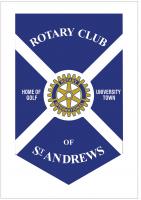A Connected Life
Wed, Aug 29th 2018 at 12:50 pm - 2:00 pm
A personal journey through 50 years of an information & communications technology revolution
Club members please log in for more information.
John reflected on fifty years of an information and communication technology revolution - rivalling the Industrial Revolution itself.
In the mid sixties researchers used punch cards and computers filled whole rooms. By the seventies, working at Guelph University, Ontario, John could access the University’s computer from a terminal in his own home. Those were the early days of visual display and electronic mail. This was all text based. There were no images.
A sabbatical in Switzerland saw John help establish the regulatory framework for broadcasting. In 1971 connector speeds were 0.1 kilobits / second rising to 9.8 kilobits / second by 1984.
Personal computers appeared in the early eighties. John became involved in computer conferencing linking researchers in developing countries. Here in Scotland the Arkleton Trust worked to reduce isolation in rural areas. A computer in a barn in Nethy Bridge (actually shared with the livestock) served farmers and fishermen in remote areas. This service was eventually taken over by BT.
Business didn’t discover computers till well into the nineties. Different technologies didn’t always talk to each other. From the mid eighties computers began to supercede fax machines. At first, email signatures were not legally accepted.
The next step was the mobile phone. John remembers his first cell-phone which cost 3,500 Canadian dollars - the price of a car! The accompanying satellite dish was a huge structure in the garden.
In 1996 he moved to the Red Cross in Geneva “to play with their toys.” There he had internet based email, an SMS phone system and GPS using low orbiting satellites. Something in which even the military showed interest.
By 1998 speeds of 56 kilobits / second were achieved. That was only the start: 70 million megabits were followed by today’s gigabits. Instantaneous connections are now possible for large amounts of data.
John summed it up nicely saying, “It’s been a blast!”
Rotarian, Vic Chapman, proposed the vote of thanks, not only for an enlightening talk but also for all the help and support John so readily gives members experiencing problems with new technology.
.
 Contact John Black about this page:
Contact John Black about this page:
'What We Do' Main Pages:
_1.jpg)
International links with Foundation to form Rotary's service avenue for improvements in International Understanding.
more
Rotaract St Andrews is a University based club sponsored by the Rotary Club of St Andrews. Check out Rotaract St Andrews Facebook page for more info
moreIn general terms the purposes of this committee are ...
moreLinks with environmental issues
more
 (1024x768) (800x600)_1.jpg)
 (2).jpg)
.jpg)

 (640x480).jpg)

.jpg)
